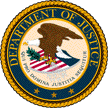
DISNEY AGREEMENT
![]()
FACT SHEET
On January 17, 1997, the Department of
Justice
and Walt Disney Co. (Disney) signed an agreement under the
Americans with
Disabilities Act (ADA) to ensure services to people who are deaf
or hard
of hearing at Walt Disney World attractions. The agreement
includes attachment
A which identifies auxiliary aids to be provided at each Walt
Disney World
attraction.
HIGHLIGHTS OF THE AGREEMENT
Persons who are deaf or hard of hearing will have access to the following services:
Interpreters
Oral and sign language interpreters will
be provided
at three major Walt Disney World parks -- Magic Kingdom, Epcot
Center, and
Disney-MGM Studios -- and Disneyland on a regularly scheduled
basis. Interpreters
will be available at shows, performances, and some moving
attractions, on
a daily schedule at one of the three Walt Disney World parks each
day. Days
scheduled for interpreting will rotate around the three parks, so
that interpreters
will be available at each park on certain days each week. On the
day that
interpreters are scheduled at a park, Disney schedules will
permit guests
who are deaf and hard of hearing to attend all, or nearly all, of
the interpreted
attractions at that park in a single day. Some Disney attractions
are already
being interpreted; interpreters will be added at many others no
later than
March 1, 1997 at Walt Disney World, and no later than December
31, 1997
at Disneyland.
Requests for Interpreter Services
Certain attractions at Epcot Center will
be interpreted
upon request with two weeks' notice even though they are not on
the general
interpreter schedules. For guests who can show special
circumstances, including
trips of less than two days that will not permit the guest to
take advantage
of scheduled performances at the park of choice, Disney will
attempt to
honor requests for interpreting services at any park on a day not
already
scheduled for interpreting.
Captions
Disney is installing existing captioning
technology
and may be developing other technology in the future. Guests may
request
auxiliary aids for captioning at any performance or attraction
without advance
notice by asking Disney personnel at the entrance to a particular
attraction.
Some attractions are already captioned and many others will be
captioned
by December 31, 1997.
"Rear Window"
One captioning system already in use at
Disney
is the "Rear Window" system developed by CPB/WGBH
National Center
for Accessible Media (NCAM) and inventor Rufus Butler Seder in
Boston. The
system provides captions that can be viewed on plexiglass panels
connected
to a theater seat and permit the viewer to see the screen and the
captions
at the same time. "Rear Window" is currently in use at
the Smithsonian
Air and Space Museum's Langley IMAX Theater, the Entergy IMAX
Theater in
New Orleans, the Tennessee Aquarium in Chattanooga, and soon at
the Gateway
Arch in St. Louis. A similar NCAM-developed system is in place at
the Hayden
Planetarium at the Museum of Science in Boston. (For more
information, call
WGBH's NCAM at 617-492-9258; or find them on the Internet at
http://www.wgbh.org/ncam)
ALS's and Written Transcripts
Disney has been providing assistive
listening systems
(ALSs) to permit hard-of-hearing guests to increase the volume of
sound
at many attractions. Disney has also provided written transcripts
for most
of its attractions for some time and will continue to provide
those transcripts
at Guest Services upon request. On rides such as Splash Mountain,
Pirates
of the Carribbean, Mr. Toad's Wild Ride, Space Ship Earth, and
others, guests
who are deaf or hard of hearing will have the opportunity to
promptly ride
a second time in order to better understand the text.
Employee Training
Disney will improve employee training in
the treatment
of guests with disabilities, the availability of services and
auxiliary
aids, and procedures and policies regarding guests with
disabilities.
Advertising
Disney will include in all advertising
the availability
of services for persons with hearing disabilities and the
availability of
aids for persons who are deaf or hard of hearing.
Future Technology
Disney has agreed to continue to evaluate and develop other technologies and methods of providing effective communication for any attractions at which captions or interpreters are not provided by December, 2000.
Cases & Matters by ADA Title Coverage | Legal Documents by Type & Date | archive.ADA.gov Home Page